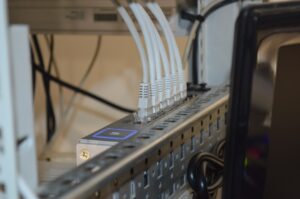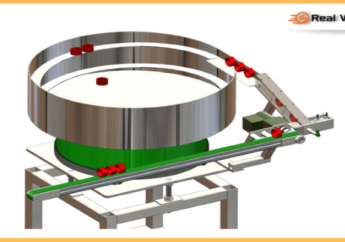Choosing A Residential Internet Connection: Here Are 5 Things To Note
by Abdul Aziz Mondal Technology Published on: 18 February 2022 Last Updated on: 18 February 2025

The Internet is one of human life’s most basic and important elements. This is primarily because the internet has helped us remain connected and streamlined several aspects of our lives.
This is why it is natural that people have slowly developed a certain dependency on this phenomenon. The dependency level is so high that many businesses would cease functioning without an internet connection.
Add e-commerce to the mix, and you have a complex concoction. Therefore, in this article, we will look at some tips that can help you make the right choice regarding residential internet, but we will also explore the business side of it.
Therefore, stick around as we will help you guide you through the journey. Let’s go!
Top 5 Things To Note Before Choosing An Internet Connection

As you may know, Wi-Fi routers use radio waves to transmit wireless internet to devices and regulate network traffic. This is similar to tuning in to your favorite FM radio station and being unable to connect because the radio signal is weak or you are out of range.
This is why you must check a few factors before choosing a residential internet connection:
1: Availability
Unfortunately, in rural areas, this is the most important deciding factor.
A high-speed cable or fiber connection won’t help your business if the provider doesn’t serve your area.
A surprising amount of homeowners have only a few options, which usually include satellite internet and either broadband or 4G-LTE network, which can be surprisingly good with the right equipment and plan
If you choose the connection with services available in your area, you can download unlimited movies and games from ipiratebay without worrying about losing the connection.
There are different types of internet that cater towards more rural areas, such as satellite internet for rural areas, this is due to cabled internet not reaching the more remote areas.
2: Speed
An internet connection must guarantee good speed to serve the client’s needs without buffering. Therefore, speed is the most crucial element in choosing an ISP for some clients.
They merely want access to the fastest internet available in their location. But, of course, this depends entirely on your location and the services available to you as a business or customer.
When comparing plans, the “Bandwidth” is the figure you’re looking for. The bandwidth denotes the per unit data it can handle at a time.
Some clients are fortunate enough to enjoy fiber connections with 1000 Mbps speed, while others are stuck with 3 to 6 Mbps only.
3: Cost

The third important detail is the overall cost of the internet connection. This is a really important detail because pricing decides how much you are shelling out on a monthly basis. Therefore, it can add up eventually.
Therefore, understand the budget that you can shell out as it decides the quality of the connection you will be able to avail. However, the best way to proceed is to strike a balance.
Assess your reason behind availing internet connection . This will help you understand the amount of money you are allowed to shell out. In case of a residential internet, then we suggest that you do not go overboard. Try to stay in a lane and proceed.
4: Type
How fast the internet “feels” is primarily determined by the type of connection used. Even though it has reasonable download rates, satellite internet is renowned for appearing “slow.”
The reason for this is simple physics. First, your satellite transmits a signal traveling 22,000 km. Then, it contacts a network center to detect the required location.
This message is then transmitted to an orbiting satellite, returning to you.
Even if it travels at lightspeed, this operation takes nearly 500 milliseconds, plus any additional request processing time on both the server and client sides.
5: Reliability
Reliability is very important for individuals who are availing of internet services for their business. Without a reliable connection, businesses like e-commerce business might cascade into major problems.
Therefore, you need to understand the overall essence of the reliability. Especially if your business model is heavily dependent on the power of internet. A sketchy internet will not just impede business processes but also effect growth.
The best way to minimise internet drops is to understand the importance of SLAs. SLAs or service level agreements ensure that the internet service provider in question will have to provide solutions for connection drops ASAP.
In case of a breach, the service provider needs to restore connections ASAP. Therefore, being contract bound will motivate the ISP with more vehemence.
How To Choose The Right Internet Connection: Mistakes To Avoid

We have extensively discussed the importance of the markers you need to understand to choose the right internet connection. We are not done yet. In this penultimate section, we will look at some of the mistakes you must avoid while choosing the right internet connection. Here we go!
- Not doing enough research can land you in trouble and make you pay extra. Therefore, always consider researching before committing to an internet provider.
- Always be upfront about hidden fees. Ask questions to help you understand if there is a hidden fee. This will help you prepare.
- Always understand and keep in mind your bandwidth needs. Try not to go overboard or cut corners when it comes to bandwidth. This will be detrimental to the purpose that led you to take an internet connection.
- The provider must always provide impeccable customer service. Do not cut slack on customer service, as this can have a far-reaching impact on your connectivity.
- If you are using an internet connection for your business, you need to consider the scope of scalability as well. This will ensure that tht connection has the optimal bandwidth for scalability. Otherwise, you might face bottleneck issues.
Final Thoughts
In summation, whenever you plan on getting an internet connection for your resident, you must follow the checklist we mentioned here.
This checklist will help you understand the markers that a stable internet connection demands. Therefore, you need to understand these markers and work along.
Let us know if you liked this content, and follow us for more such content on business and wealth management.
Thank you, and have a great day ahead.
Read Also:



































































































